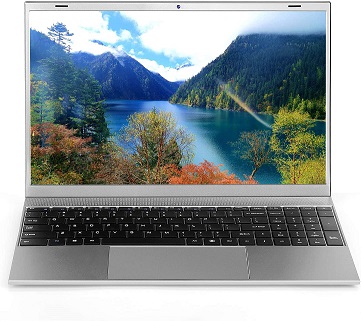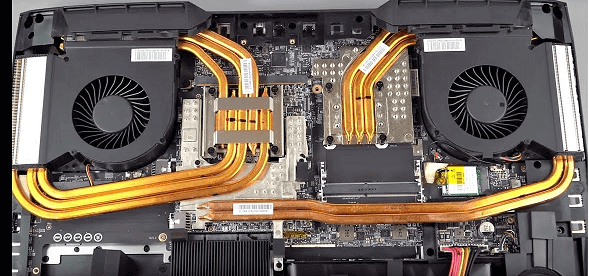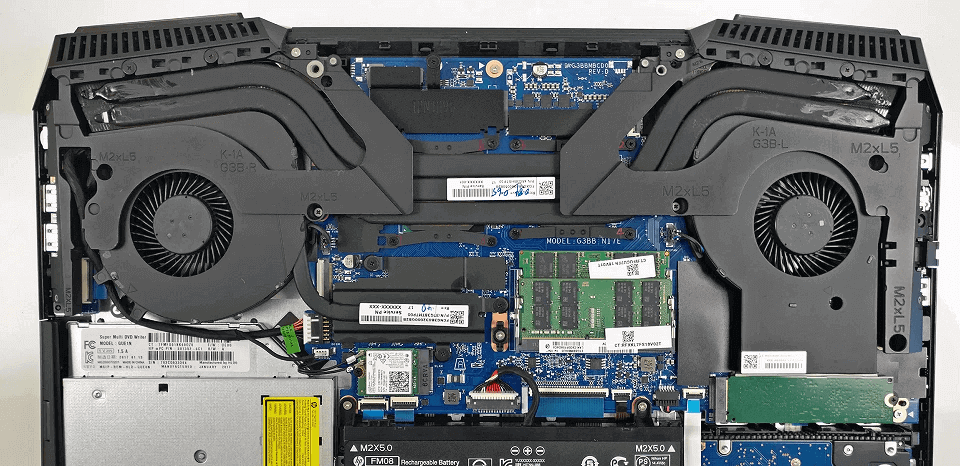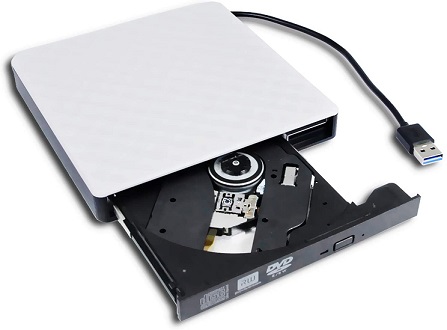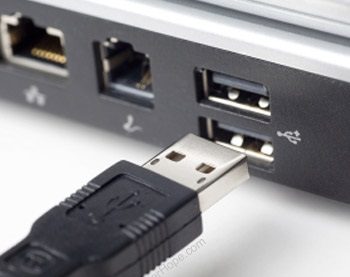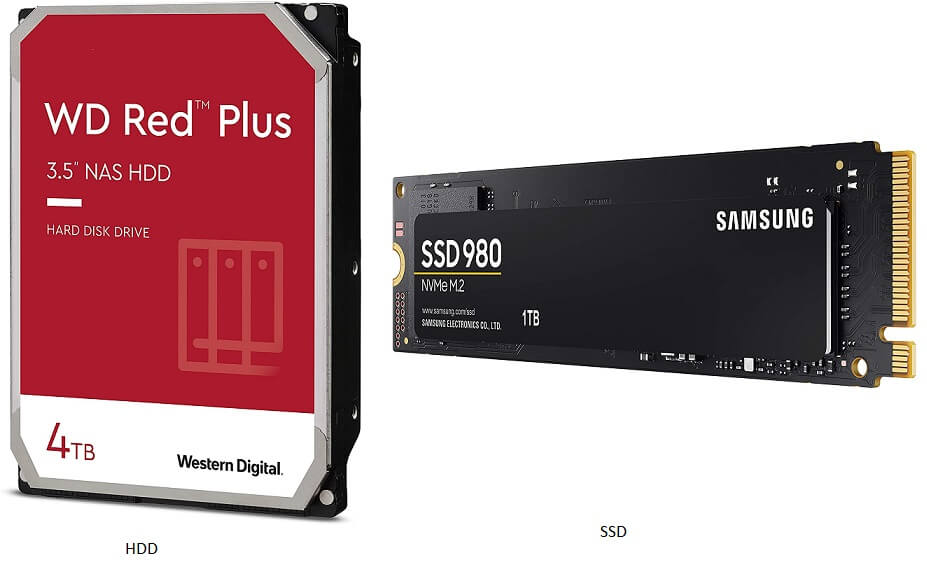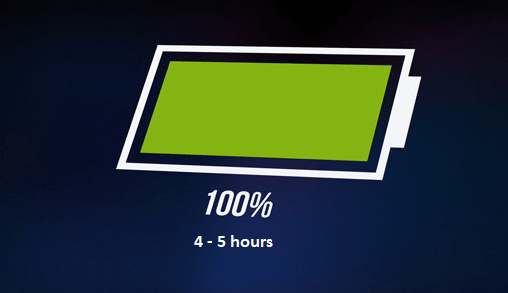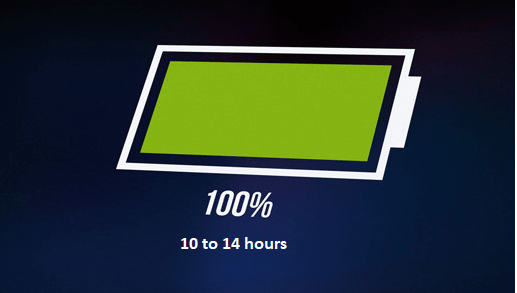A lot of users are faced with the option of buying either a laptop or a notebook while looking for a highly portable yet efficient computer. Portable devices, including laptops, have come a long way, and there are many different types of options available in the market right now. Most people get confused between a laptop and a notebook as both options look very similar and available at nearly the same price range.
Although, you must know that laptops and notebooks are different types of devices already if you are reading this article. Today, we will be going through the basic differences between a laptop and a notebook and compare both devices based on factors like functionality, usage, battery life, and many more. Stick until the end of our comparison to find the best option for yourself.
Outline
ToggleWhat is a Laptop?
A laptop is the first iteration of a portable desktop computer. These devices are mostly as powerful as a desktop computer and powered by similar types of hardware specifications. You will be able to perform almost all of the tasks on a laptop that you can perform on a similarly powerful desktop computer.
Because of the hardware specifications, laptops are generally thicker in comparison and weigh considerably heavier than other options. Laptops also feature additional connectivity options such as CD drives, DVD drives, disc burners, and other peripherals, making it a perfect standalone device.
What is a Notebook?
A notebook is basically a modern version of portable computers or laptops that are significantly compact in terms of form factor and features a rich performance for the price range. As the name suggests, the notebooks are typically offered with a size aspect of a physical notebook which makes it an ideal option for outdoor usage.
Notebooks are packed with only essential hardware and come with a limited set of specifications which makes them ideal for productivity and entertainment-based services. Although, you might need a dedicated desktop computer or an additional working platform for heavy tasks. The notebooks are significantly lighter than laptops and also consume less power than a laptop.
Comparison chart
Even if you understand the basic differences between a laptop and a notebook, you should spend some more time and understand the unique features and applications for both options before you select one. We will strongly recommend you to go through all of the aspects mentioned below where we will compare a laptop and notebook thoroughly. In case you are looking for a quick comparison, here it is.
| Laptop | Notebook | |
| Cooling Performance | Laptops are usually designed with a dedicated cooling system. | Notebooks have a passive cooling system. You will rarely find one that has dedicated cooling fans. |
| Weight and Form Factor | Laptops are bulkier in size and generally weigh higher compared to a notebook. | Notebooks follow a slim form factor and weigh almost half as compared to a heavy gaming laptop. |
| Processing Power | The processors used in laptops are more powerful than notebooks. | Notebooks are paired with power-efficient processors that offer comparatively lower performance. |
| Additional Peripherals | Laptops are equipped with additional USB slots and dedicated CD drives and card readers. | Connectivity options on a notebook are limited to USB drives. |
| Dedicated Graphics Card | Gaming and heavy-duty laptops have a dedicated GPU. | Notebooks usually operate on integrated graphics. |
| Price Range | Laptops are significantly more expensive than a notebook. | Notebooks are comparatively more affordable. |
| Portability | Laptops are less portable than a notebook. | Due to less weight and compact form factor, notebooks are more portable. |
| Upgradeability | Upgradability options are commonly available with laptops. | Upgradability is very limited for a notebook. |
| Screen Size | Laptops offer a larger screen that goes up to 17.3 inches. | Notebooks are generally limited to 14 inches screen size. |
Difference between Laptop and Notebook
After going through our comparison between a laptop and a notebook presented above, you can surely make the right choice with ease. But it is necessary to understand these differences in detail if you are planning to use the laptop or the notebook for a long time and are going for rather a premium option. Hence, we will be explaining the crucial factor mentioned above in detail in the next section of our article.
Functionality
Laptop
A laptop is usually designed for extended functionality, which also includes resource-heavy applications such as video editing, rendering, content recording, and much more. Thus, you will find a sufficient amount of storage space as well as high RAM capacity on your laptop.
A laptop is also a great choice for those who need to store data on a local drive. If you are working in a professional firm and get all of your work done through your laptop, you will find ample storage capacity to store your data offline.
Notebook
Notebooks are designed for those who only require a platform to carry out online work. There are some very low-profile notebooks available in the market that only feature up to 64 GB eMMC storage capacity, which is sufficient for the OS and a couple of software.
This way, notebook manufacturers can minimize the footprint of the device while offering all essential services required for productivity-focused tasks. The minimized hardware drag also allows you to use the notebook in a distant location without needing to find a plug point before starting the work.
Screen size
Laptop
Laptops are comparatively larger in size due to the added hardware and extra peripherals available on board. Hence, to compensate for the footprint of the laptop, you will usually get a similarly large display with a laptop. As for the gaming-focused laptops, the display is one of its best features, with large panel size and increased refresh rate.
The large display size is suitable for all kinds of applications as it offers a larger working space for the user and does not create problems while working from a distance. But it also increases the overall size of the device, which reduces its portability.
Notebook
Portable notebooks are usually available with up to 14 inches screen size. Such screen size is sufficient for official work. Also, it is suitable for entertainment if you enjoy online content streaming services like Netflix, Amazon Prime, Hulu, etc.
There are many different variants available in terms of display in notebooks. While some notebooks offer a touchscreen display, some are designed with standard IPS panels to provide the best viewing experience despite the display size.
Processing Power And Cooling System
Laptop
Laptops are powered by high-performance CPUs that offer great processing power for the laptop. But, it also increased the heat generation, which requires a dedicated cooling system in the laptop. In high-end laptops, you will also find a dedicated graphics card paired with additional fans to keep the system temperature under control.
As there is an active cooling system available in laptops, you also get the option to customize the cooling performance according to your preference. You can switch between noisy cooling profiles or silent performance modes on different laptops.
Notebook
The processing power of a notebook is comparatively weaker than a laptop. This is because notebooks are paired with a low power consumption CPU and other hardware. You will also notice the absence of a dedicated graphics card on a notebook which is necessary to keep the battery performance high and form factor compact.
As there is not much going on inside a notebook, the temperatures are often under control most of the time. In case you are watching a high resolution movie or carrying out a heavy task, you will notice a slight temperature rise in notebooks. For that, there are passive cooling solutions applied, such as an elevated design to allow proper air flow through the notebook.
Connectivity
Laptop
Connectivity options like CD/DVD drives are slowly being phased out nowadays, just like the floppy drives that are nowhere to be seen. Still, there are some applications where CDs are still being used, and thus, there are a handful of laptops that offer CD/DVD drives. You will also find disc burners on some laptops that help you to create a permanent backup on a DVD.
Laptops also have more USB ports available so that you can connect multiple storage devices as well as USB-powered peripherals to the laptop simultaneously. Also, having additional high-speed USB ports on a laptop is beneficial for those who rely on high-speed data transfer.
Notebook
While the wireless connectivity options are pretty good for a notebook, you will notice limited connectivity options available on board. This includes a reduced number of USB ports and a lack of options like a CD drive entirely.
Also, the USB slots available on a notebook will be slower in comparison with the laptop. Where a laptop offers you a USB 3.1 port, you will only find a USB 2.0 port on a notebook. But, there are a few brands that are offering new generation type C ports for an increased data transfer speed.
Storage Space
Laptop
There are different types of storage drives available in the market. There are high capacity HDDs that are provided in laptops for high storage capacity, which is useful for storing large games and movies. Also, there are SSDs paired with the HDD where you can install the OS for a reduced boot time and overall faster performance.
There is a handful of premium laptop series that offers up to 1 TB SSD pre-installed on the unit so that you get a high storage capacity as well as faster operational speed. Laptops also allow you to upgrade the storage capacity later on if necessary.
Notebook
When it comes to notebooks, the primary focus is always productivity and faster speeds. Thus, almost all notebooks are presented with a pre-installed SSD. But, the storage capacity of these SSDs is limited to 512 GB. In budget options, you will also find 128 GB SSDs installed on boards.
Upgradeability is a rare sight in notebooks. While there are some brands that offer upgradeability options for the device, most notebooks are designed with a soldered RAM and storage drive which makes it impossible to upgrade in the future.
Battery Life
Laptop
The battery life of any portable device is dependent on the battery capacity as well as the power requirement of the installed hardware. In the case of laptops, the battery life is usually limited to 4 to 5 hours. Also, the performance of a laptop is reduced if it is being used unplugged.
The same goes for high-end gaming laptops that have a dedicated graphics card. The high-end graphics card requires a lot of power and the overall TDP of the CPU is also very high. Thus, you can expect about 5 hours of battery life from a gaming laptop which decreases with time.
Notebook
The battery life is exceptional on a notebook. Even while using unplugged, a notebook will easily offer you 7 to 9 hours of battery life while watching video content or streaming videos on the streaming platforms.
In premium notebooks, the battery life might get as good as 10 to 14 hours, depending on the brand and the operating system used in the notebook. This makes it a perfect device for long-distance travels as you can always stay connected with the world and work on the go.
Cost
Laptop
Laptops are designed for heavy-duty work. Thus, there is expensive hardware installed in a laptop, which increases its overall price range. With a high RAM capacity, a high-end processor, and possibly a high-end graphics card, you will be spending quite a lot on a decent laptop from a reliable brand choice.
Based on your configuration requirement, you can choose between various budget options on a laptop as well. But keep in mind that a budget-focused laptop will offer you reduced performance as well as a limited battery life compared to premium options.
Notebook
Notebooks are quite cheaper compared to premium or even standard laptops. In the case of notebooks, the hardware such as CPU, RAM, and storage options are more or less similar. Hence, most notebooks that offer similar specifications are also offered in a similar price range.
Although, there is still a premium range of notebooks available that is designed for a specific user base. You can have a few notebook options that are as expensive as a high-end gaming laptop, if not more. These options offer exceptional battery life and performance speed which is not available with a laptop.
Weight and Portability
Laptop
A laptop is only as heavy as the hardware installed in it. Thus, laptops are quite heavier compared to notebooks. While laptops are also designed with the purpose of portability, they are also made in such a way that a laptop mimics the performance of a desktop computer in a portable manner.
Another important factor in a laptop is its external body. Gaming laptops and premium laptops are made out of a high-quality metal body which increases the weight of the laptop altogether. The same goes for the laptop with a dedicated graphics card which might weigh as high as 4 kg in some cases.
Notebook
If you are looking for a compact and lightweight option, a notebook is a perfect choice for you. Built with a low profile body and limited hardware specifications, notebooks are extremely lightweight. There are some special notebook options available that even weigh under 1 kg which is quite rare.
The reduced weight and body profile of a notebook make it the best option for portable use. Also, the increased battery life is a cherry on the top for unplugged usage in public spaces. It can easily fit inside a standard-sized bag and be carried around with the rest of your stuff.
Conclusion
We hope that choosing between a laptop and a notebook does not seem as hard right now as it did before reading our article. You can check the detailed comparison between a laptop and a notebook available here which will definitely clarify the choice for you.
If you are looking for a simple productivity and entertainment-focused option which you can carry and use for a long time, you should go with a notebook. As for a laptop, it is a great choice for those who do not have a secondary desktop computer and deal with resource-heavy tasks that rely on the graphical performance of the device.


